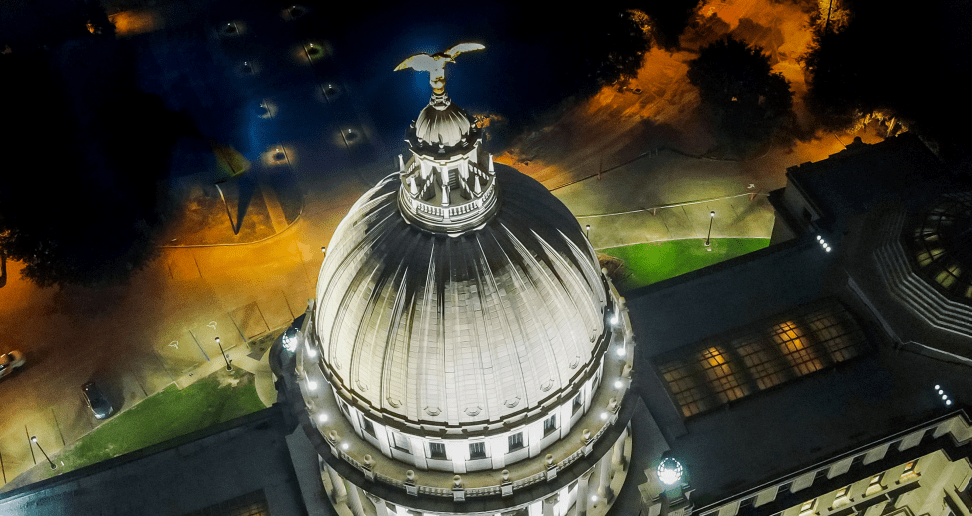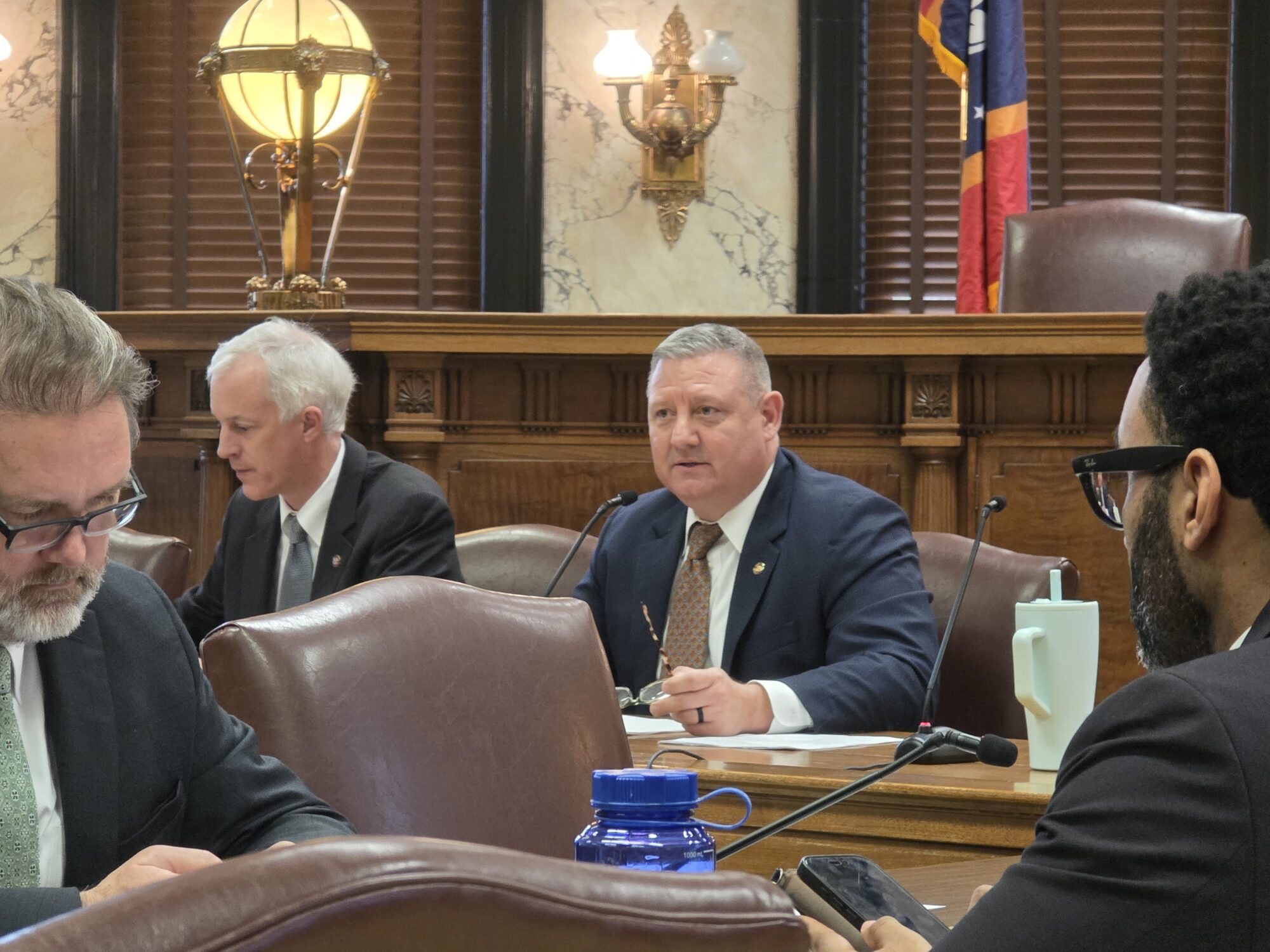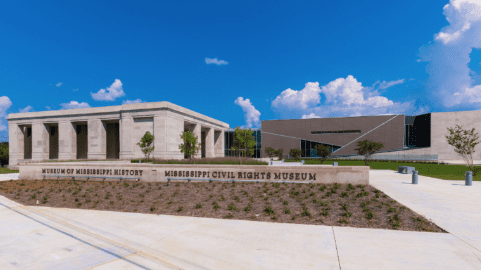
(Photo from Governor's 2024 EBR)
Listen to the audio version of this article (generated by AI).
- Democrats say electoral maps “have been rigged for a very long time” in Mississippi while Republicans contend that the Voting Rights Act “has unfortunately been weaponized.” See who’s on the Nov. 4 ballot.
The U.S. Supreme Court is considering whether to limit the use of the Voting Rights Act to force states like Mississippi to draw electoral districts favorable to black voters. Tuesday’s special elections in the Magnolia State are a direct result of that practice.
Three years ago, the Mississippi NAACP filed a lawsuit challenging the 2022 legislative redistricting plan claiming black voting strength had been diluted.
Lawmakers, then, adopted their version of a revised electoral district map in an attempt to comply with federal court ordered redistricting, namely in DeSoto and Chickasaw counties as well as in the Hattiesburg-Forrest County area. The result was the need to hold multiple mid-term special elections in the affected areas for both House and Senate seats.
Yet, following the passage of the Legislature’s remedial attempt at redistricting, the NAACP told the federal court that the updated maps did not do enough to satisfy their complaint and asked the federal panel to consider changes.
The federal three-judge panel at the U.S. Fifth Circuit consisting of Judge Leslie Southwick and U.S. District Judges Sul Ozerden and Daniel Jordan reviewed the maps and listened to both the NAACP and the Mississippi State Board of Election Commissioners. Ultimately, the judicial panel approved a revised plan submitted by the State Board of Election Commissioners and set the special elections.
Republicans have a supermajority in both the Mississippi House and Senate, as well as hold the Governor’s office and all seven of the other statewide elected positions. These gains have been achieved over the last 15 years. Prior to that, Democrats held majorities across Mississippi state government for nearly 100 years.
Mike Hurst, the chairman of the Mississippi Republican Party, who was also recently named general counsel of the Republican National Committee, told Magnolia Tribune that the Voting Rights Act “has unfortunately been weaponized over the years by liberal interest groups that seek to divide Americans based on race and to draw voting districts along racial lines.”
“This is wrong, as election districts should be based on communities and common sense, while preserving the constitutional principle of ‘one person, one vote.’ Unfortunately, the court’s recently drawn legislative maps continue this trend of dividing Mississippians by race,” Hurst said.
Democrats see Tuesday’s special elections in Mississippi as an opportunity to make inroads in a ruby red state.
The Democratic Legislative Campaign Committee (DLCC) and the Democratic National Committee (DNC) have both come out in support of the Democrat candidates running for the Legislature on Tuesday.
DNC Chair Ken Martin announced earlier this month that the national party is now investing $22,500 a month into traditionally red states like Mississippi through the DNC’s Red State Fund. The DNC said it would support the Mississippi Democratic Party in the November special elections by assisting with on-the-ground voter contact and organizing efforts while also freeing up funds for paid programming, like direct mail, and digital and TV ads.
On a call Monday with the DLCC, Jeremy Jansen said they made a small investment in Mississippi, recognizing the opportunity in the special elections. He said “maps have been rigged for a very long time” in Mississippi and now Democrats “have a fairer shot now on a more level playing field.”
MSGOP chairman Hurst does not see the Democrats’ investment paying off come Tuesday.
“While the Democrats may think this will give them an advantage on election day, they are sorely mistaken,” Hurst said. “Republicans have the best policies that benefit all Mississippians, we have recruited solid candidates, and we are running incredible campaigns.”
Hurst said on Election Day, he thinks Democrats “are going to be surprised that their strategy to use the courts to get themselves elected did not work.”
Depending on the outcome of the Louisiana case before the U.S. Supreme Court, the practice of holding such special remedial elections to ensure majority-minority electoral districts could come to an end.
Special Redistricting Elections on the Ballot November 4
Senate District 1
- Chris Hanna – Democrat
- Michael McLendon – Republican (incumbent)
Senate District 2
- Charlie Hoots – Republican
- Theresa Ison – Democrat
Senate District 11
- Reginald Jackson – Democrat (incumbent)
- Kendall Prewett – Republican
Senate District 19
- Dianne Black – Democrat
- Kevin Blackwell – Republican (incumbent)
Senate District 44
- Chris Johnson – Republican (incumbent)
- Shakita Taylor – Democrat
Senate District 45
- Johnny DuPree – Democrat
- Anna Rush – Republican
House District 22
- Justin Crosby – Democrat
- Jon Lancaster – Republican (incumbent)
Other Special Elections on the Ballot Tuesday
Voters in select areas will also head to the polls for special elections as a result of vacancies. Those races are listed below.
Senate District 24 (non-partisan race to fill vacated seat)
- Curressia Brown
- Jason Colquett
- Everette Hill
- Loretta McClee
- Justin Pope
- Georgio Proctor
Senate District 26 (non-partisan race to fill vacated seat)
- Coleman Boyd
- Jermaine Cooley
- Letitia Johnson
- Theresa Kennedy
- Kamesha Mumford
- James Pittman
- Jeffery Stallworth
House District 26 (non-partisan race to fill vacated seat)
- Mary Frances Dear-Moton
- Kimberlyn Seals
- Otha William
Circuit Court Judge, District 12, Place 2
- Tangi Carter
- Wes Curry










